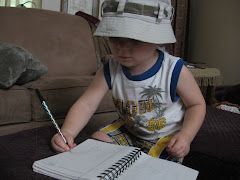• They are set in the future and are often post-apocalyptic.
• The government has dictatorial control.
• Technology is advanced, but only benefits the elite.
• The citizens are in a fight for their life.
Some classics that fall into this category include 1984, Fahrenheit 451, and Brave New World. Of course, The Hunger Games is the stand-out dystopian story of this year. In the country of Panem, the people of the twelve districts are starving while the citizens who inhabit the capital live in exorbitant luxury and excess. Technology allows the government of Panem to create the Hunger Games each year. Held in a virtual arena, two children from each of the twelve districts are forced into a fight to the death with only one of the 24 participants coming out alive. Their families and friends are forced to watch on live television as one after another of their children is murdered until the winner is announced.
So what’s to recommend the extremely bleak and hopeless dystopian story? Several things draw me to it. First, the plots involve social issues on steroids, so the imaginative aspect is intriguing and attention-grabbing. The authors ask the question, “What if . . .?” – What if we ran out of our energy supply (like oil or electricity)? What if abortions could be had retroactively? What if people were cloned? What if Americans were allowed to have only two children due to overpopulation? The imaginings surrounding these types of questions are interesting and thought-provoking. Second, the main characters involved in these stories are smart, determined, and courageously looking for answers. I find that I like them as they struggle through the conflicts found in the stories and have the guts to act on what they believe. Third, they take young adults seriously. By that, I mean that the authors treat their YA audience as intelligent, thinking people who care about issues. My students enjoy a meaty story with lots to chew on. These novels have that in spades.
Dystopian fiction is sometimes (often?) controversial because of the social issues that provide the basis for the premise. Parents worry about their young, impressionable teens becoming depressed by the stories. I think these novels encourage young adults to think for themselves, look out for others, and participate in the world beyond their doorsteps so that the atrocities found in the plots are never allowed to come to pass.
There is so much to say about this genre of fiction; however, instead I will make some recommendations.
Shusterman, Neal. Unwind. (2009)
Abortions have been made illegal following a second civil war. However, if children do not “reach their potential,” parents are allowed to sign an order to have their child unwound. This can happen any time from their thirteenth birthday to their eighteenth. Technology provides the means to have every single part of the unwound teen’s body used as transplants, so in effect, the children don’t die, but are rather living in a spread out fashion. This book is chilling, and the characters are brave as they band with other “unwinds” to escape the fate of being disassembled.
Farmer, Nancy. House of the Scorpion. (2004)
Matteo was harvested using the DNA of El Patron, the lord of a land called Opium which lies between the United States and what was once Mexico. Because Matt is a clone, he is shunned by almost all of those he comes in contact with. However, El Patron loves him and Matt is sure that he is destined for something great. However, as Matt discovers the truth, he must fight for his life and the lives of those who live in Opium. This novel provides the reader with lots to chew on when it comes to the ethics of human experimentation and the definition of human life.
Anderson, M. T. Feed. (2004)
Imagine a future where TV and internet can be hard-wired directly to the brain. Advertisements – what to buy, where to eat, what to do, are fed directly to the brain after the “feed” data mines input, including where the person has spent his time and what he was doing. Unfortunately, not everyone can afford to get the feed, but it becomes increasingly obvious that those who do not have it are at a distinct disadvantage. A satire, Anderson’s novel explores the shallow world where everything is based on the feed, and people who have it are unable to think, act, or speak for themselves. In fact, they’re barely able to think or speak at all. They don’t have to – they have the feed. Titus, the main character, doesn’t see a problem until he meets someone whose feed is not functioning correctly. As the story ends, he is only beginning to explore the implications of having the feed.




